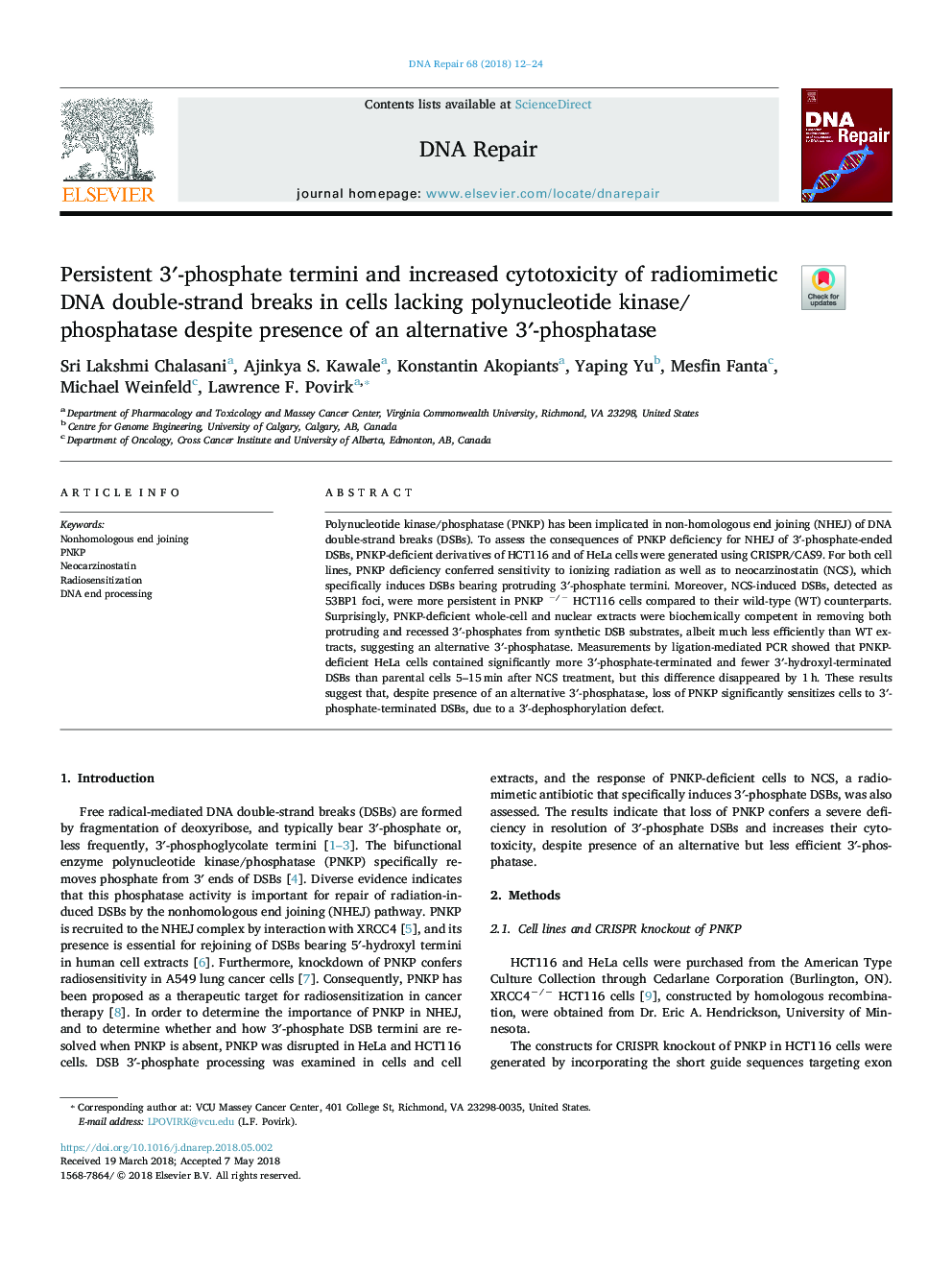| Article ID | Journal | Published Year | Pages | File Type |
|---|---|---|---|---|
| 8320329 | DNA Repair | 2018 | 13 Pages |
Abstract
Polynucleotide kinase/phosphatase (PNKP) has been implicated in non-homologous end joining (NHEJ) of DNA double-strand breaks (DSBs). To assess the consequences of PNKP deficiency for NHEJ of 3â²-phosphate-ended DSBs, PNKP-deficient derivatives of HCT116 and of HeLa cells were generated using CRISPR/CAS9. For both cell lines, PNKP deficiency conferred sensitivity to ionizing radiation as well as to neocarzinostatin (NCS), which specifically induces DSBs bearing protruding 3â²-phosphate termini. Moreover, NCS-induced DSBs, detected as 53BP1 foci, were more persistent in PNKP â/â HCT116 cells compared to their wild-type (WT) counterparts. Surprisingly, PNKP-deficient whole-cell and nuclear extracts were biochemically competent in removing both protruding and recessed 3â²-phosphates from synthetic DSB substrates, albeit much less efficiently than WT extracts, suggesting an alternative 3â²-phosphatase. Measurements by ligation-mediated PCR showed that PNKP-deficient HeLa cells contained significantly more 3â²-phosphate-terminated and fewer 3â²-hydroxyl-terminated DSBs than parental cells 5-15â¯min after NCS treatment, but this difference disappeared by 1â¯h. These results suggest that, despite presence of an alternative 3â²-phosphatase, loss of PNKP significantly sensitizes cells to 3â²-phosphate-terminated DSBs, due to a 3â²-dephosphorylation defect.
Related Topics
Life Sciences
Biochemistry, Genetics and Molecular Biology
Biochemistry
Authors
Sri Lakshmi Chalasani, Ajinkya S. Kawale, Konstantin Akopiants, Yaping Yu, Mesfin Fanta, Michael Weinfeld, Lawrence F. Povirk,
